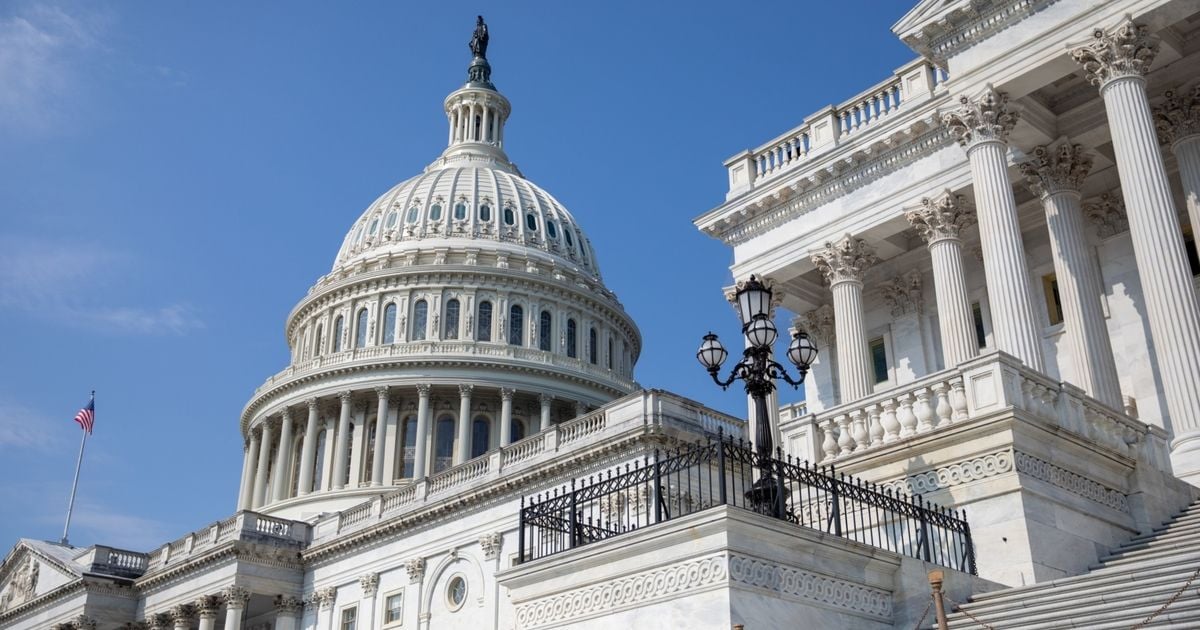
WASHINGTON — Despite bipartisan efforts in the House and Senate, new-car dealers looking to Congress for legislation on LIFO tax relief may need to wait until next year.
The nearly $1.7 trillion omnibus spending package unveiled Tuesday was seen as one of the last legislative vehicles for a bill that would have provided relief to dealerships that use the “last in, first out” inventory accounting method and have struggled to maintain inventory levels because of the global semiconductor shortage.
Congress is preparing to pass the package before a weekend deadline. The bill, which funds the federal government through Sept. 30, leaves out the much sought-after LIFO relief.
“There is strong, bipartisan, bicameral support in Congress for providing LIFO relief to dealers. However, the omnibus spending bill released Tuesday did not include any business tax provisions such as LIFO,” NADA spokesman Jared Allen said in a statement to Automotive News. “NADA will continue working until Congress adjourns this year to leverage the extensive support to find an opportunity to pass LIFO relief.”
Lawmakers on both sides of the aisle have supported legislative action to provide relief to dealers who are facing significant tax burdens triggered by global supply chain disruptions and subsequent inventory shortages related to COVID-19.
In April, U.S. Rep. Dan Kildee, D-Mich., introduced a bill — known as the Supply Chain Disruptions Relief Act — that would allow dealerships to wait until 2025 to replace their inventories and determine the income attributable to the sale of such inventory during 2020 or 2021, giving dealers time to restock their inventories as the chip shortage eases and auto production returns to pre-pandemic levels. The bill is supported by more than 170 House lawmakers, including 95 Republicans.
Kildee said he will continue working to provide relief to new-car dealers.
“Car dealerships are job creators across mid-Michigan and throughout America, and many of them are facing unavoidable, unexpected tax bills due to supply chain disruptions during the pandemic that were beyond their control,” Kildee said in a statement. “While we work to strengthen our supply chains and bring critical manufacturing back to America, car dealerships that use ‘Last In, First Out’ accounting, or LIFO, need this relief.”
In the upper chamber, U.S. Sen. Sherrod Brown, D-Ohio, introduced a companion bill under the same title.
Both bills would provide a statutory determination that the requirements for a qualified liquidation under Section 473 of the Internal Revenue Code have been satisfied for new-vehicle dealers that have experienced a reduction of new vehicles held in LIFO inventory.
Brown’s bill has the support of more than 50 lawmakers, including 35 Republicans.
“Auto dealers continue to face dramatic and unprecedented inventory shortages as a result of pandemic-related foreign supply chain disruptions, and, without support, recovery could be long and hard for Ohio’s affected local businesses, employees and their customers,” Brown said in a statement. “This legislation has broad bipartisan support and although it was not included in the year-end spending package, I look forward to working with my colleagues next Congress to push this across the finish line and provide much needed relief.”
NADA and the Alliance for Automotive Innovation — along with some Senate Democrats led by Brown and a bipartisan group of U.S. representatives led by Kildee — previously urged the Treasury Department to grant temporary LIFO relief under Section 473, giving dealers up to three years to restore their inventories to more normal levels.
Treasury Secretary Janet Yellen signaled her department’s support of legislative action in response to a question from Kildee during a House Ways and Means Committee hearing in June.
“I understand Treasury staff has been working with congressional staff on producing legislation that would provide relief for impacted automobile dealers,” Yellen said. “We support a legislative solution and look forward to continuing to work with you through the process.”